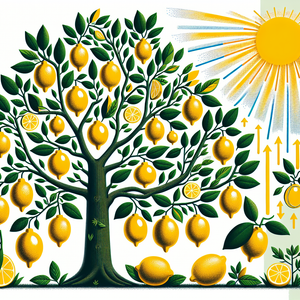
Exploring Exciting Careers in Language Technology: Pathways to Success Beyond Google Translate
The field of language technology is experiencing rapid transformation, driven by innovations in applications like Google Translate, which provides instantaneous translations across numerous languages. As globalization continues to demand effective communication across diverse cultures, the need for skilled professionals in this domain is surging. This article offers an in-depth look at various career opportunities within language technology, illustrating how each role contributes to the evolution and enhancement of tools like Google Translate. We will examine the responsibilities, required skills, and industry trends for each position while providing insights into job market growth and salary expectations. This exploration aims to equip readers with a clearer understanding of how to navigate a fulfilling career in this dynamic and impactful field.
Job Summaries:
Language Data Analyst:
- Language Data Analysts are essential for refining machine translation systems, including Google Translate.
- Their role involves gathering and interpreting linguistic data to boost translation accuracy and fluency.
- With a background in linguistics or computer science and expertise in statistical analysis, these professionals play a crucial part in enhancing how translations are delivered.
- As reported by industry analyses, demand for data analysts in language technology is projected to increase by 25% over the next five years, with salaries typically ranging from $70,000 to $90,000 annually.
Machine Learning Engineer:
- Machine Learning Engineers are the architects behind the algorithms that power translation services.
- Their responsibilities include designing models that learn from extensive datasets and collaborating with linguists to capture cultural subtleties in translations.
- A degree in computer science and experience with deep learning frameworks are essential.
- As the job market for these professionals expands, salaries generally fall between $100,000 and $130,000.
Localization Specialist:
- Localization Specialists ensure content is culturally and contextually appropriate for specific markets, going beyond mere translation.
- They adapt formats, visuals, and other elements to align with local customs.
- This role requires a background in linguistics or cultural studies and fluency in multiple languages.
- With the increasing focus on localization, this role is gaining traction.
- Average salaries for this role range from $60,000 to $80,000.
User Experience (UX) Designer:
- UX Designers are responsible for creating intuitive interfaces for translation applications.
- They conduct user research, design wireframes, and test usability to ensure a seamless experience for users.
- A background in design or human-computer interaction, paired with a solid portfolio, is crucial.
- As technology prioritizes user experience, UX Designers can expect salaries ranging from $80,000 to $100,000.
Computational Linguist:
- Computational Linguists connect the realms of language and technology by developing linguistic frameworks that enable effective translation algorithms.
- Their work involves analyzing language structures and collaborating closely with software engineers.
- A strong foundation in linguistics and programming is vital for success in this role.
- With a growing demand for technology-driven language solutions, professionals in this area can anticipate salaries between $90,000 and $110,000.
Software Developer:
- Software Developers in the translation sector focus on building and maintaining the software that drives translation tools.
- Their tasks include coding, debugging, and ensuring optimal performance.
- A degree in computer science or software engineering is necessary, along with proficiency in programming languages like Python or Java.
- As the tech industry expands, developers are in high demand, with salaries typically ranging from $85,000 to $120,000.
Quality Assurance (QA) Tester:
- QA Testers play a critical role in maintaining the quality of translation applications.
- They identify bugs and confirm that translations meet established standards through both manual and automated testing.
- Attention to detail and knowledge of software testing methodologies are essential.
- The demand for reliable translation tools drives the need for QA Testers, who can expect salaries from $60,000 to $75,000.
Content Strategist:
- Content Strategists develop multilingual content strategies.
- Ensuring consistent brand messaging and effective localization across diverse markets.
- A background in marketing or communications is beneficial.
- They collaborate with translators to maintain a unified voice.
- With the growing emphasis on engaging varied audiences, Content Strategists can anticipate average salaries ranging from $65,000 to $85,000.
Technical Writer:
- Technical Writers create essential documentation and guides for users of translation tools.
- Includes manuals and help resources.
- Strong writing skills and familiarity with translation technologies are crucial in this role.
- Technical Writers are increasingly in demand as companies aim to enhance user understanding.
- Salaries typically range between $60,000 and $80,000.
Data Scientist:
- Data Scientists analyze extensive datasets related to language usage, translation accuracy, and user behavior to inform technology development.
- Proficiency in statistics and data visualization tools is critical.
- With the rise of data-driven decision-making, the demand for Data Scientists is soaring, with salaries ranging from $95,000 to $130,000.
These insights illustrate the diverse range of career opportunities within language technology and underline the essential roles that drive the functionality and success of translation services like Google Translate. As this sector continues to evolve, it opens up numerous pathways for professionals eager to facilitate communication across linguistic divides. For those looking to embark on a career in this exciting field, exploring current job openings and resources aligned with your skills and aspirations is a great first step. The future of translation technology is promising, and your next career move could be just a click away.
Explore More Jobs

